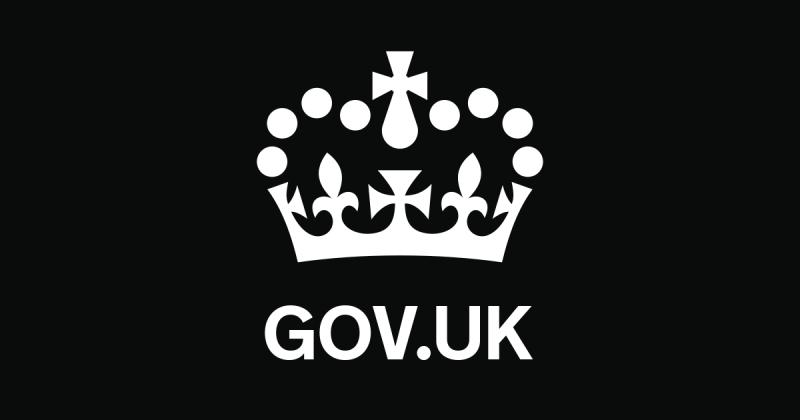The UK government has a fresh initiative t to draw in more educators to bolster their education system. They’ve rolled out a program called the international relocation payment scheme, which is designed to offer financial assistance to aspiring teachers who are open to moving to the UK.
In this program, the government provides a substantial £10,000 to assist individuals in covering expenses related to relocating and establishing themselves in a new country. This not only motivates prospective educators globally to think about teaching in the UK but also shows the government’s dedication to enhancing the education standard and tackling the shortage of qualified teachers in the nation.
This initiative by the UK government aims to draw in skilled individuals who can play a key role in enhancing and expanding the country’s education system. The goal is to bring in talented people who can actively contribute to the progress and advancement of education in the UK.
IRP Eligibility And Qualifications
The International Relocation Payment (IRP) provides financial support to teachers who are eligible and planning to relocate. To be eligible for IRP, you must meet three specific criteria, which are:
- Teaching Subject Requirement
- Visa Type Requirement
- Arrival Date Requirement
1. Teaching Subject Requirement:
To be eligible for the IRP, you must be employed by an English state secondary school on a contract beginning in the 2023 to 2024 academic year, which spans from September 1, 2023, to August 31, 2024. Furthermore, your contract must have a duration of at least one year, and you should be working as one of the following:
- A physics teacher
- A general or combined science teacher (with a focus on the physics component)
- A language teacher (any language is acceptable, except English)
If you’re a teacher handling various subjects, it’s important that at least half of your teaching time is dedicated to either physics, general or combined science, or languages. The Department for Education will check this when you apply. If you’re not sure about your eligibility, reach out to your school for clarification.
Examples of eligible teaching roles include:
- Teaching 50% modern foreign languages (e.g., French, Spanish, or German) and 50% of other subjects (e.g., history).
- Teaching 50% modern foreign languages and 50% English language.
- Teaching 50% physics and 50% mathematics.
- Teaching 50% general or combined science (with the physics element) and 50% mathematics.
Notice
In the UK, state schools are those funded by the government to educate kids either from ages 11 to 16 or 11 to 18. If a teacher is solely instructing students aged 16 to 18, they don’t qualify for the International Relocation Payment Scheme (IRP). However, if they have ongoing or permanent contracts lasting more than one year, they do meet the eligibility criteria.
2. Visa Type Requirement:
Your eligibility for IRP is also contingent on the type of visa you hold when coming to England. You must enter England on one of the following visas:
- Skilled worker visa
- Youth Mobility Scheme
- India Young Professionals Scheme visa
- Family visa
- UK Ancestry visa
- British National (Overseas) visa
- High Potential Individual visa
For specific Ukrainian and Afghan visas, you can apply for your visa from within or outside the UK. These visas include:
- Afghan citizens resettlement scheme
- Afghan Relocations and Assistance Policy
- Ukraine Family Scheme visa
- Ukraine Sponsorship Scheme
3. Arrival Date Requirement:
Teachers who wish to qualify for the IRP (International Relocation Payment Scheme) need to relocate to England within three months before they start their teaching job.
Non-eligibility for Teachers
It’s important to note that you will not be eligible for the international relocation payment if you fall into any of the following categories:
- A UK citizen, including citizens of Wales, Scotland, and Northern Ireland
- An Irish citizen
- A non-UK citizen who moved to England to live permanently more than three months before starting your job
- Present in England on a dependent partner visa linked to your partner’s skilled worker or student visa
- Teaching only English language
- Employed on a contract lasting less than one year
- Employed by a recruitment agency – while an agency can facilitate your placement in a school, your contract must be directly with the school, and your salary should be paid to you by the school, not the recruitment agency.
If you meet these criteria, you can take advantage of the support provided to make your transition to teaching in England as smooth as possible.
Teachers who have started their teaching jobs can now apply for the international relocation payment (IRP).
Applying For The International Relocation Payment Scheme
Here’s everything you need to know about the IRP application dates and how to apply.
Application Period
If you’re a new teacher or about to become one, you should know that the IRP application window period is open from September to October.
To qualify for the IRP, make sure to submit your application within this timeframe. If you meet the requirements, you’ll likely get the IRP funds by January 31st, 2024. Applying on time ensures you can take advantage of this financial support.
Now, let’s say you missed the October deadline or you start your teaching gig later. Don’t worry, there’s still a chance. You can keep your eligibility for the IRP by applying in the next round. For those in this situation, the application window reopens between January and February.
You can express your interest in the IRP by sending an email to irp.expressinterest@education.gov.uk. You will be contacted when applications open in the coming year.
How to apply for IRP
To begin your application for the International Relocation Payment (IRP), it’s crucial to first secure a teaching position. Discover valuable insights into landing the ideal teaching job and navigating the visa application process to make your transition seamless.
Once you’ve successfully landed a teaching job and are fully ready, you can proceed to apply for the IRP here.
If you’re undergoing training and have paid a fee for it, you won’t have to separately apply for the international relocation payment. Eligible individuals will receive this payment from their training provider, typically around the end of the first term.



